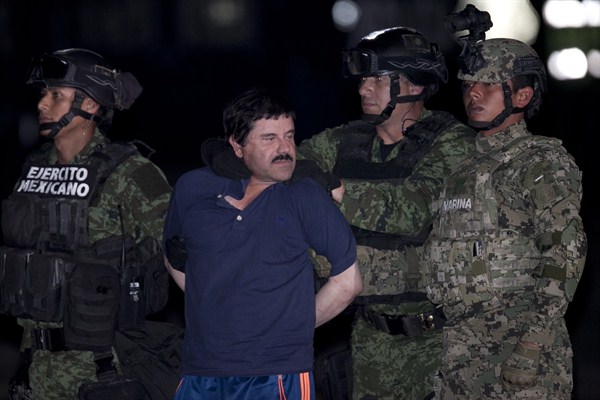Six months after suffering one of the greatest embarrassments of his term, Mexican President Enrique Pena Nieto breathed a sigh of relief early last month. “Mission accomplished: we have him,” he announced on Twitter: Drug lord Joaquin “El Chapo” Guzman, Mexico’s most wanted man, had been recaptured by Mexican marines in the state of Sinaloa.
But the implications of El Chapo’s escape and arrest do not just end at the border. The episode has reinvigorated security cooperation between the United States and Mexico, while shining a light on the partnership’s economic benefits, as well.
El Chapo’s brazen July 2015 escape from the country’s most secure prison marked a low for U.S.-Mexico relations and for Pena Nieto, whose approval ratings dropped to 34 percent that month. Mexicans couldn’t believe that El Chapo had slipped out, and they accused the government of being complicit.

